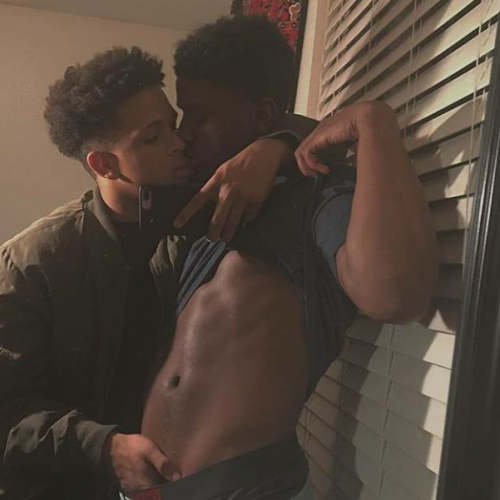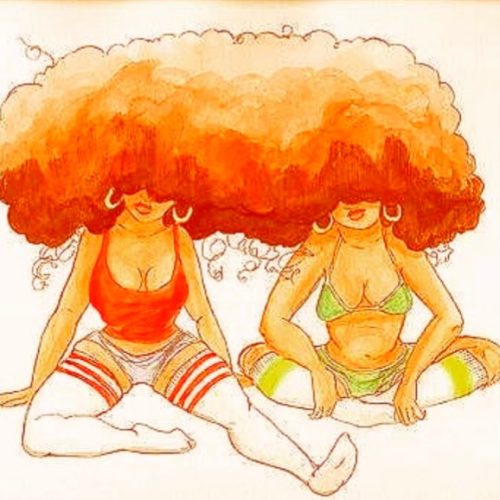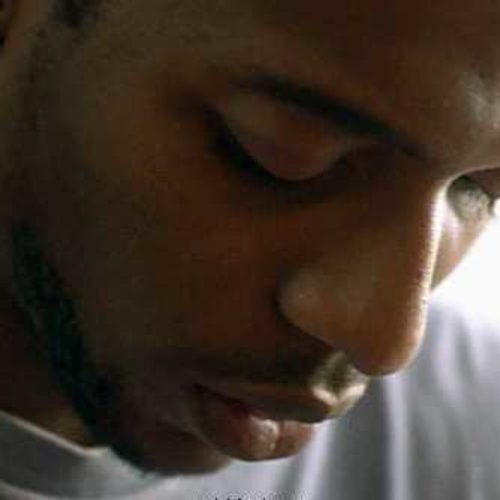KITO DIARIES PRIZE FOR WRITING: THE MAN IN A GOWN
“He doesn’t matter,” your father says.
You keep your face expressionless, your lips set in the same tight line they were minutes ago. You know your father thinks you didn’t hear him, but you did and the words swim in your head.
He doesn’t matter, he’d said, like how your one tattoo doesn’t matter, like how his marrying another wife doesn’t matter. His words sting—like the time your brother convinced you to rub salt on your wounds—because he is talking about you and you can’t recoil or lash out because he isn’t talking about you.
No, his eyes are on the flat screen where a young man is being beaten and flogged for wearing a gown. He is talking about the man being homosexual. Homosexuals are the ones who don’t matter.
And the words sting because he is talking about you.
***
You became aware of homosexuals in secondary school, a missionary boarding school for boys. You were lanky, shy, effeminate, and had a huge flair for the dramatics. So the other boys had no problem throwing gay terms at you: boy-girl, okpo ntu, omeka nwanyi, homo. You didn’t wonder why and what they meant when they called you those—you were twelve and innocent. What you did wonder though was why your eyes strayed to the groins of your peers, or why you were fascinated with watching seniors play football, or rather, watching their penises swing like a pendulums in their loose shorts while they ran. Especially that of your senior, Kelechi.
He was tall, Kelechi, with a bulky frame and powerful legs, and he was known by everybody in school for being a prodigy on the playing field, despite being in JSS3. But you knew him because his pendulum was the longest.
He noticed you staring, he must have, because he called you to the toilet, unzipped his trousers, brought out his penis and asked you to put your mouth on it. You kneeled in front of him, held him in your hands, stared at the engorged pink head and wondered how something could be warm yet cool, feel so soft yet hard all at the same time. He got hasty and pushed himself into your mouth, and while you struggled to breathe, he kept moving and making noises that were strange to your twelve-year-old ears. He stopped when your mouth was filled with a bitter taste, and he slapped you, because you’d asked him to return the favour. He wasn’t a homo, he said. You knew then what your peers meant, and that whatever you just did made you one: a homo—the same word the other boys threw as an insult.
And yet, somehow, you discovered that you didn’t care.
Because you’d liked sucking Kelechi’s penis
***
The noise from the flat screen television is loud. The man in a gown is now bloody and bulbous. You can see his chest rise and fall slowly. You wonder if the TV station will be sued for showing footage of uncensored mob violence. You quickly decide that they won’t.
“Disgusting,” your father mutters. “They should’ve finished him off.”
You turn toward him, stare at his lifted chin as he stares down at the television, and you clench your fist. You want to hurt him. You want to jump on him, scratch at his face and scream in his ears that the man in a gown is human, that he shouldn’t be murdered like chicken because he has a mother and a father and siblings and probably a lover.
But you don’t, because your father chooses that time to turn and look at you, his brows furrowed, nose scrounged.
“Can you imagine sleeping with your fellow man?” he asks.
You know, almost immediately, that the question is not a question. No, it is rhetorical, because the look on his face is the same look he wears when he makes these sorts of statements, the “why are you girly” and “can’t you stop gesticulating” statements. You shake your head for effect, but you don’t miss the way his gaze runs over you inquisitively, scrutinizing, as if to reassure himself that you didn’t turn homosexual in the little time his eyes were on the flat screen.
You look back at the screen. The man in a gown is being picked up by paramedics. What is left of his gown is dyed red. The paramedics look disgusted.
***
You are familiar with disgust. Kelechi had let you know that he was disgusted by you after the slap. He’d let you know he was disgusted every time he dragged you out of the dorm and asked you to suck him. He kept coming back though, despite the disgust. Maybe because you were the only one willing in an all boys school, or maybe because of the “I love yous” that slipped from his lips while he filled your mouth.
He stopped however, when the school decided to hold an assembly in the chapel and the vicar decided to talk on the immorality of homosexuality. You saw Kelechi nod his head to the preacher’s words and you wondered why he couldn’t meet anyone’s eyes.
He met you again that day, after the assembly, and while you readied yourself for another round of kneeling and bobbing your head on a pole of warm ebony flesh, all the while stroking your own member, he surprised you.
“I don’t want to see you again,” he said. “I’m not gay. I’ll report you if I find out you tried anything with anyone else.”
You stared wide eyed, heart starting to race, your dick speedily deflating, and pondered on why your chest hurt at his words, and why you felt like you’d lost something. You asked why. Why he always returned if he wasn’t gay himself, why he would report you if it meant revealing your years-long arrangement. He turned and started walking away.
“It doesn’t matter,” he said.
***
The footage of the man in a gown has been removed, yet you still sit by your father on the sofa. Your back aches and you wish your father would leave so you can have the sofa all to yourself, and maybe change the station. But you know he won’t, because he is still fixated on the flat screen where two TV presenters are sitting stiffly.
They are discussing the man in a gown.
“It was inhumane,” one of them, a man, says. His shoulders are broad—too broad for your liking—and you watch with eager eyes as he shakes his head in…disappointment? “They shouldn’t have beaten him half to death just because he was possessed.”
You suddenly feel sick. You watch with mild bewilderment as your father shuffles forward on the sofa. You feel the eager attentiveness roll off him in waves. You wish you could leave, but you’re sure father would make you stay.
“That was a mob action,” the other presenter says. “Nothing they do is humane. And I don’t think he is possessed, I think he is just…sick, maybe. What would make a man wear a full blown gown to the market, if not madness?”
“Possession, that’s what!” the broad-shouldered presenter says. “He is possessed by western demons! Imagine a man trying to be a woman and sleep with men!”
“I think he should have been beaten more. Maybe exorcise the demon out of him,” your father says, before settling back into the chair.
“What if he dies?” you find yourself asking. You voice is low, your stomach upset. Dry bile settles in your throat. The TV presenters are arguing in the background, their chatter meaningless as your father responds.
“Then the world is left with one less homosexual.”
***
Kelechi was a homosexual.
You confirmed it a year after his threat, during your graduation from school. He’d arrived with other alumni, clad in a tight baby blue suit that had your heart clench with the same feeling of loss as that day he threatened you.
You avoided him, choosing instead to laugh tightly with your fellow graduates. That is, until he cornered you. He was sorry, he said. He was confused, he said. He missed you, he said. And then he kissed you —a tongue-dancing, spit-swapping kiss that had your toes curling in your footwear.
But you had a boyfriend, and you couldn’t cheat. You told him so, and watched as he left, shoulders slumped, the feeling of loss almost choking.
Last you heard of him, he was at the receiving end of Sharia law in the north.
***
The seconds that follow are tense. Silent. The flat screen is on mute, the remote is in your hands.
“You’re sick,” you spit.
Your father’s eyes widen and he opens his mouth to talk.
You don’t let him.
“You’re sick and a bastard. I wish I wasn’t born from your loins.”
Your father calls your name harshly. He rises from the sofa, his eyes dark with anger. You rise also. You wonder what had gotten into you. You will yourself to stop, to apologize before it becomes too late. But your lips don’t stop moving.
“Those people you call possessed are trying their damned hardest to live their lives as who they’re not because of people like you.
“They try so hard to fit in a society that would dump them like rags if the word ‘gay’ is so much as associated with them.
“We try so hard to live our lives and you don’t even care if we live. We’re human too!”
You breathe harshly, your heart thuds against your chest. Your father is wide-eyed, his mouth hangs open. You don’t process the fact that you’d just come out to him. You turn around.
“Our lives matter,” you say in a harsh, low tone. “We matter in every way possible.”
You walk out of the room, out of the house, then dial your boyfriend’s number and ask him for a place to stay.
About author
You might also like
Breaking the Code
Before I got my ex-girlfriend pregnant, I used to fuck around without a care in the world. It didn’t matter who I gave the dick to – dudes, bitches, trans
FEELS GOOD TO BE BAD
“Look at this moron,” Akere said, as she made a thumping motion with her right foot, which made her round breasts jiggle. I was a student of a girls only
I REMEMBER
FOREWORD: The following is a work of fiction, written by Masked Man and dedicated to all those who have experienced the loss of loved ones. * I remember vividly the very










3 Comments
Mandy
January 25, 21:38My god, this story spoke to me, mehn! For a moment, I thought the story would end with the guy letting his father get away with his inhumanity without calling him out in some form. But it gave me more than I hoped for in the ending. The anger was beautiful, the way he went from “they” to “we”, effectively coming out to his homophobic father. Just love it. The IDGAF-ness of that ending is worth inspiring to. Sometimes, we just gotta let the homophobes in our families HAVE IT!
Chime
January 28, 10:33I couldn’t agree more.
Tony
January 29, 11:44Uhmm. Dude’s writing style is tight. I love it.